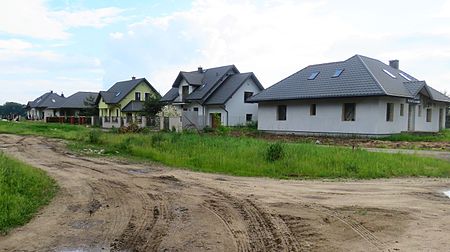Kopana, Pruszków County
Pruszków County geography stubsVillages in Pruszków County

Kopana [kɔˈpana] is a village in the administrative district of Gmina Brwinów, within Pruszków County, Masovian Voivodeship, in east-central Poland. It lies approximately 6 kilometres (4 mi) south of Brwinów, 10 km (6 mi) south-west of Pruszków, and 23 km (14 mi) south-west of Warsaw.
Excerpt from the Wikipedia article Kopana, Pruszków County (License: CC BY-SA 3.0, Authors, Images).Kopana, Pruszków County
Graniczna, gmina Brwinów
Geographical coordinates (GPS) Address Nearby Places Show on map
Geographical coordinates (GPS)
| Latitude | Longitude |
|---|---|
| N 52.093888888889 ° | E 20.737777777778 ° |
Address
Graniczna 2A
05-807 gmina Brwinów
Masovian Voivodeship, Poland
Open on Google Maps






